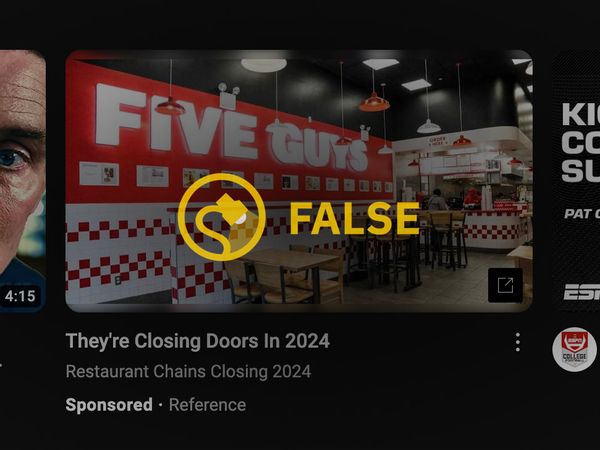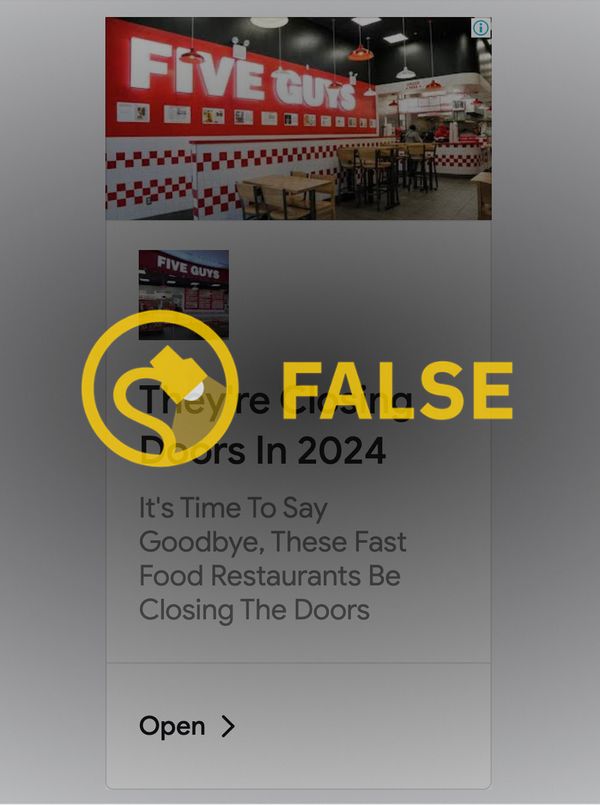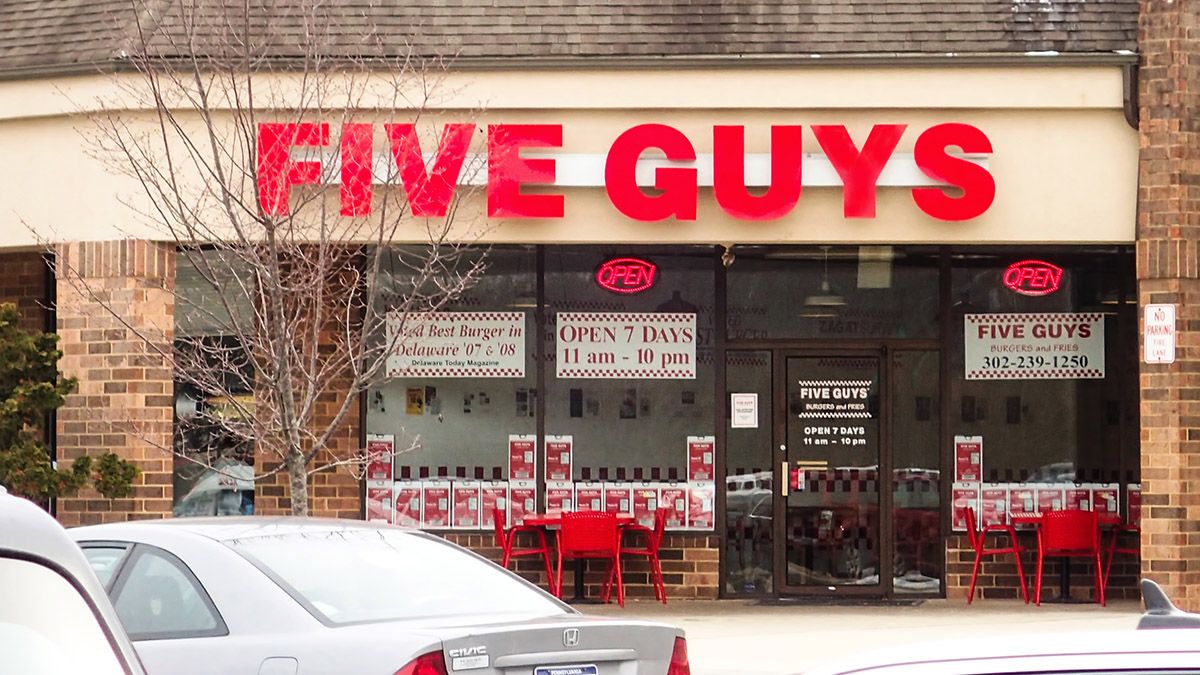The ads that made these false claims were nothing more than misleading clickbait that attempted to entice reads to click or scroll through 68 slides. We've detailed below why these kinds of ads and articles exist in the first place.
In December 2023, online advertisements were displayed to YouTube users that showed one or more photos of Five Guys restaurant locations. For example, the caption for one ad read, "They're Closing Doors In 2024. Restaurant Chains Closing 2024."

Also, in Google ads that featured the same photos of Five Guys restaurants, the caption was displayed as follows: "They're Closing Doors in 2024. It's Time To Say Goodbye, These Fast Food Restaurants Be Closing The Doors." Several other variations of these ads were also displayed online.

The ads appeared to claim that Five Guys would be closing all of its locations, going bankrupt or going out of business for other reasons. However, this was false.
All of the ads led to an article on Reference.com with the headline, "These 53 Restaurant Chains Are on the Brink of Disappearing Entirely." The article's page source code indicated that the story was perhaps written during or before the year 2020 and was last republished in 2021. In other words, the article that was being advertised in December 2023 was two or more years old.
The article listed 68 different businesses, most that appeared to be American brands. Under each business name were several paragraphs describing whether the companies would be closing some or all of its locations. In other words, the article was fairly long.
Nowhere in the apparent 68-slide article was Five Guys mentioned even once. The ads with the photos of Five Guys restaurant locations were false and misleading clickbait that may have originally been created to lure readers to click or scroll through 68 slides for nothing.
The reason why these kinds of ads and articles exist is usually something called advertising arbitrage. Advertising arbitrage is a strategy in which an advertiser hopes to make more money on ads displayed in a lengthy article than it would cost to display an initial clickbait ad meant to attract users to the article. In other words, instead of the ads being both attractive and potentially helpful to consumers, they instead mislead users from the start.
We reached out to Five Guys by email to ask if they had a statement to share regarding the false and misleading ads and will update this story if we receive a response.
Note: If readers would like to report any strange or misleading ads on Snopes, we invite you to contact us. Please include the full link of the website where the questionable ad led to so that we can attempt to investigate and potentially block any such ads.

